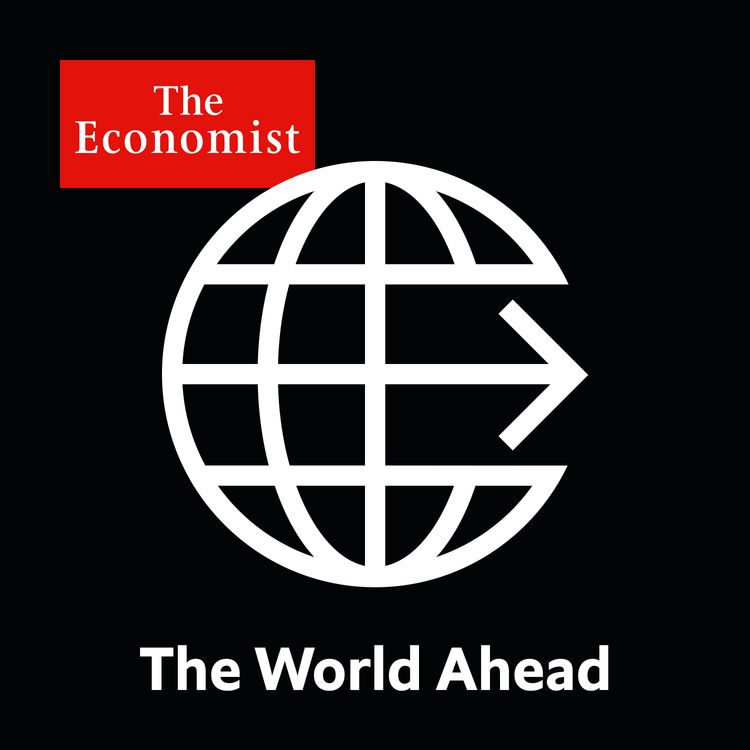Share

The World Ahead from The Economist
The World Ahead: The future of education
•
Will personalised learning replace teachers? Host Tom Standage travels to the year 2042 to find children being taught by personalised learning assistants powered by artificial intelligence, and funded by corporate advertising. What does this mean for schools? Back in the present, Sal Khan, founder of Khan Academy, and Mark Johnson, The Economist’s education correspondent, debate how technology will change education, and the merits of the “flipped classroom”.
For full access to The Economist’s print, digital and audio editions subscribe at economist.com/podcastoffer
More episodes
View all episodes

The World Ahead 2023: The art of forecasting
23:33|We turn the spotlight on forecasting itself, and look back on the predictions we made for 2022. How accurate were we? How do “superforecasters” look into the future? And how can forecasters account for irrational world leaders when predicting major events? Charlotte Howard, The Economist’s executive editor, talks to Tom Standage, editor of The World Ahead, and Warren Hatch, the CEO of Good Judgement, a “superforecasting” platform and partner of The Economist.Please subscribe to The Economist for full access to print, digital and audio editions:www.economist.com/podcastoffer
The World Ahead 2023: Watch the mega-states
25:12|Where is American politics heading in 2023? Alexandra Suich Bass, The Economist's senior correspondent for politics, technology and society, and our Lexington columnist, James Bennet, look outside Washington, DC, to the four mega-states to take the political temperature. Will divided government and razor-thin majorities cause politics to grind to a halt in the coming year? And will the presidential election of 2024 be a re-run of 2020? Tom Standage hosts.Please subscribe to The Economist for full access to print, digital and audio editions:www.economist.com/podcastoffer
The World Ahead 2023: Bigger elephant, leaner dragon
19:26|When it comes to demographic shifts, 2023 is going to be a big year. India will overtake China to become the world’s most populous country in 2023—and China’s population will start to shrink. What are the pros and cons of growing and shrinking populations, and what can governments do in response? Tom Standage asks Brooke Unger, The Economist’s international correspondent, and Lena Schipper, South Asia bureau chiefPlease subscribe to The Economist for full access to print, digital and audio editions:www.economist.com/podcastoffer
The World Ahead 2023: China's challenges
26:31|As president Xi Jinping begins his third five-year term, China’s path forward is uncertain. Covid-19 is tearing through the country after it relaxed its strict “zero-covid” policies. China also faces slowing economic growth and rising geopolitical tensions with America. Are China’s days of rapid catch-up growth behind it? And how might the war in Ukraine change China’s calculus on Taiwan? The Economist's China Editor, Roger McShane, senior China correspondent, Alice Su, and senior Asia correspondent, Dominic Ziegler, give their views.Please subscribe to The Economist for full access to print, digital and audio editions:www.economist.com/podcastoffer
The World Ahead 2023: Understand this
23:25|We analyse the new buzzwords and jargon that could be making their way into the collective consciousness over the next 12 months. Host Tom Standage, Lane Greene, The Economist's language columnist, and Aryn Braun, West Coast correspondent, quiz each other on the meaning of deadpool, cool pavement, aridification, TWaT city, Yimby, battery belt, passkeys, horizontal escalation and the doughnut effect.Please subscribe to The Economist for full access to print, digital and audio editions:www.economist.com/podcastoffer
The World Ahead 2023: Fuelling the future
24:18|Europe faces a painful energy crunch this winter, as it tries to make do with less Russian gas. Will this crisis “accelerate the green-energy transition”—and what role can companies and consumers play in reducing consumption? Host Tom Standage asks The Economist's environment editor, Catherine Brahic and global energy and climate innovation editor, Vijay Vaitheeswaran. Also, hydrogen hype is rising again—will this time be different?We hope you enjoy listening to this podcast as much as we enjoy making it. We're always thinking of ways to improve and to do that we would like to know more about our listeners. Please help us by filling out this short questionnaire. Please subscribe to The Economist for full access to print, digital and audio editions:www.economist.com/podcastoffer
The World Ahead 2023: The coming recession
19:29|What are the prospects for the world economy in 2023? Economies face volatile energy prices and inflation at its highest level in decades. The Economist's economics editor, Henry Curr, and deputy business affairs editor, Rachana Shanbhogue, explain the dilemma facing central bankers around the world. Also, what are the global effects of a strong dollar and high American interest rates?We hope you enjoy listening to this podcast as much as we enjoy making it. We're always thinking of ways to improve and to do that we would like to know more about our listeners. Please help us by filling out this short questionnaire. Please subscribe to The Economist for full access to print, digital and audio editions:www.economist.com/podcastoffer
The World Ahead 2023: Conflicting possibilities
21:57|How will the war in Ukraine play out in 2023? The Economist’s foreign and defence editors discuss the possible scenarios for the conflict with Russia. The best one for Ukraine is also the most dangerous. Tom Standage hostsPlease subscribe to The Economist for full access to print, digital and audio editions:www.economist.com/podcastoffer
The World Ahead: The future of green travel
29:26|Can flying be made sustainable? Host Tom Standage travels to the year 2042 to find airlines making growing use of “synthetic” aviation fuel, made using carbon dioxide extracted from the atmosphere, which allows for carbon-neutral flights. Back in the present, Nat Keohane, former White House policy adviser, and Catherine Brahic, The Economist’s environment editor, discuss how sustainable fuels and broader carbon markets could help reduce the environmental impact of flying.For full access to The Economist’s print, digital and audio editions subscribe at economist.com/podcastoffer